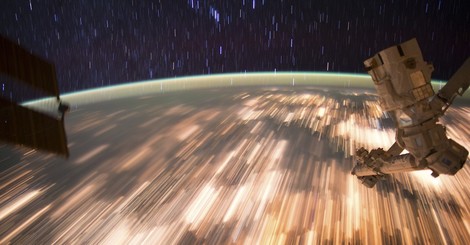Your podcast discovery platform
Curious minds select the most fascinating podcasts from around the world. Discover hand-piqd audio recommendations on your favorite topics.

piqer for: Climate and Environment Global finds Globalization and politics
I'm a freelance journalist, currently based in Madrid. I used to be a News Producer at CNBC in London before, but I thought a little bit more sun might do me good. Now I write for several news organizations, covering a range of topics, from Spanish politics and human rights for Deutsche Welle to climate change for La Marea.
A Response To Disaster Porn
Two weeks ago, New York Magazine published an article by David Wallace-Wells, titled The Uninhabitable Earth, where he painted the bleakest of future pictures. Earth, ravaged by extreme climate change, would take its revenge on us humans, making huge areas of our planet unfit for human survival. The article was widely shared and commented on, and received equal shares of praise and criticism. Here is some of the latter.
Don't get me wrong, the article is very good (please see fellow piqer Elvia Wilk's excellent review here). Wallace-Wells is pointing at some plausible scenarios, and I agree with him that the consequences of climate change are often understated. Even his article doesn't mention some of them (my personal terror lies with a halt of the Ocean Conveyor Belt).
In her response for The Atlantic, Robinson Meyer claims that Wallace-Wells' apocalyptic vision is not realistic. And indeed, scientists disagree that it's likely that all of these disasters will come up at once. That's her experience, and also mine. We are going down a dangerous slope, and it's good to keep the worst case scenarios in mind, but we're also taking steps to at least bring the situation under control.
In addition to that, disaster porn doesn't help. It's paralyzing and can lead to inaction just as much as climate change denial. And while I agree with Meyer that we journalists are not in charge of people's inspiration, we should also be aware that what we write has consequences. We don't have to frame to inspire, but framing to dishearten is even worse.
The point here is, you should read both stories. The best thing about Wallace-Well's article is that it sparks healthy debate around the consequences of climate change. The thing best about Meyer's is the hope that, with a lot of sacrifice, we can still escape the oven.
